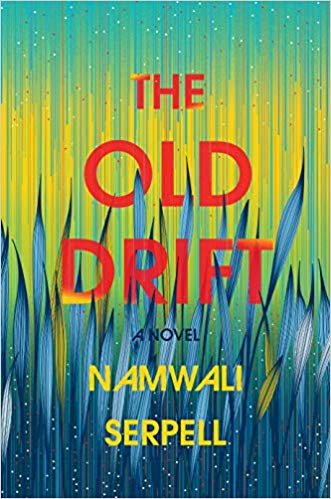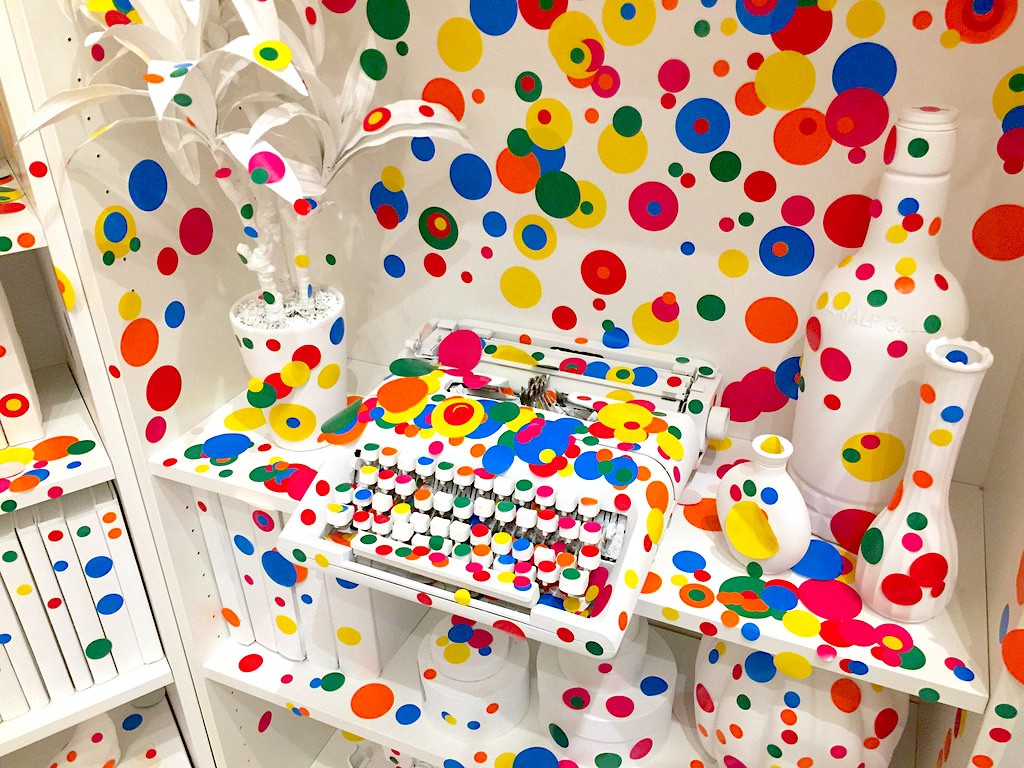Interviews
“The Old Drift” Is the Great Zambian Novel We Didn’t Know We Needed
Namwali Serpell's multigenerational novel tracks the effects of colonization from the 19th century through the near future

Over the years, Namwali Serpell has received many accolades for her short fiction, including a Rona Jaffe Fellowship and the Caine Prize for African Fiction. We can now add her debut novel The Old Drift (Hogarth Books) to the list of epic stories spanning continents, decades, and generations. A mastery of language, a deftness in description, and a dip into surrealist and speculative elements makes The Old Drift a worthwhile study in holding together several storylines through the characterization of those searching for their calling, and the cost of those pursuits. In sections of “The Grandmothers,” “The Mothers,” and “The Children,” Namwali braids together three families’ lineages near the start of the 20th century to a more immediate future in 2023. The journey begins with the matriarchs, one of which is Matha, a young Afronaut-in-training whose exuberant spirit dissolves due to continuous loss until she becomes known in her village as the woman unable to stop crying. And we conclude in a sort of present-day with “The Children,” including headstrong millennial Nailah whose relationships are as unsteady as her rebellious aims. The women and men in The Old Drift expose the idealism of unification and the reality of floundering to find place.
My interest in The Old Drift came from my own leanings towards multigenerational stories. And Serpell’s novel satisfied my predilection, taking me from Europe to what was the colonized Northern Rhodesia to present-day Zambia. The Old Drift, a burial site of Europeans who aimed to settle in Zambia, is a character but more so a figure, a representation of what was and what is and what could be as each generation has a part to play in its construction and even its demise. From the late 19th century, where a white man makes claim to land that isn’t his, to several years into the future where technology is part of our bodies, The Old Drift laces together transcontinental narratives, the repercussions of colonization and reform through varied perspectives, including omniscient narrators who see all and playfully predict what is to come. Serpell and I discussed the work that goes into writing such an expansive novel and her aims for avoiding the binary when it came to Zambia, gender, and relationships.
Jennifer Baker: I’m a sucker for multi-generational novels/stories in general.
Namwali Serpell: Great! My ideal reader.
Jennifer: And there’s a lot woven in The Old Drift. I’m curious about organizing, process, and how the story came together, but also recurring themes. For a book of this scope, how do these elements initially come together, especially since there’s interracial and intraracial conflict along with the colonization of a nation?
Namwali: When I began [this novel], I was in college, in the year 2000, and was very inspired by certain texts—Rushdie’s Midnight’s Children and Satanic Verses, Marquez’s Love in the Time of Cholera and 100 Years of Solitude. But the one that really sparked the seed of this novel was Zadie Smith’s White Teeth, which depicted a multigenerational story that unfolded the endemic multiculturalism of London. The first characters in TOD emerged generationally—Jacob, Sylvia, and Matha. And it became clear about three years into writing off and on that there were three families. I knew there was this cycle of unwitting retribution between the families, where one family affects another, which affects the third, which affects the first. Their racial and cultural admixture was always forefront in my mind. I was never very good at history. I moved back and forth between the U.S. and Zambia at the key grades for learning the history of these respective countries. So it was only in learning more about Zambian history in the last five years or so that the historical aspects of the novel grew in. I always said the novel was like a plot of land, pun intended, and I knew its boundaries but not what would grow within in.
Jennifer: The Old Drift is its own character in the larger story, yet the families are definitely representative of how things carry on in the ways of colonialism, class, race, and loss.
I always said the novel was like a plot of land, and I knew its boundaries but not what would grow within in.
Namwali: Yes, the relationships between people in terms of race, class, gender, and, yes, human emotion were actually the easiest and thickest to write. Getting certain historical and cultural and bodily details right required more research—books, movies, but also very very kind friends and acquaintances who read for the Italian parts or for the parts set in Tirupati etcetera. The funnest research for me was the sci-fi stuff! I got to nerd out.
Jennifer: These relationships and what characters reckon with speaks to certain preferences, I guess, in your storytelling the process:, knowing the people but how do they operate in an ever-changing world?
Namwali: I mean—to make this comparison is already hubristic—but Edward P. Jones’s story about carrying The Known World in his head for years, 12 years maybe? And then writing it down, that resonates with me. Once they’re people, figuring out what would happen to them felt like the easiest part. I wish I had been able to tell the full arcs of some characters. But with a cast of characters this big, I could only give snippets of folks and follow certain people—like Matha—all the way through.
Jennifer: And it’s not as though there aren’t “resolutions.” I use quotes in that instance not to say it’s tied up, but to say there is a continuation to see how lives have been affected.
Namwali: Yes. I did want my characters to have full lives that change. I think about [focal character in “The Mothers” section] Thandiwe, who sets off this whole set of events at the salon out of a sense of jealousy or revenge and then moves to a whole new country and begins a new life there. I think that’s how lives work for me. I was very keen for people to understand in particular that Zambians (all Africans) aren’t just stuck in time and place.
Jennifer: Especially making that clarification for U.S. readers. Which is why I was so struck by the narratives of historical African countries in The Old Drift and Wayétu Moore’s She Would Be King.
Namwali: Seriously. Yes, I enjoyed Wayétu’s novel! I interviewed her at MoAD in San Francisco. She’s great. It was fun to think about our novels side by side because we do very different things with “magic.” I think she and I have some resonant experiences as immigrants, but we talked about how we weren’t wanting to write (yet) about that experience—of Africans coming to America (a la the first half of Americanah, which also came late for Adichie, after two novels set primarily in Nigeria). We were both very interested in how race plays out in these colonial spaces in more dynamic and surprising ways than people often think and using “magic” to convey that.
Jennifer: I, personally, prefer a story that takes place outside the States. Rather than about acclimation, it’s about another form of that in a way. Not culturally but socially, in terms of difference in perception and execution.
I was very keen for people to understand that Zambians (all Africans) aren’t just stuck in time and place.
Namwali: I’m glad to hear that. So far my stories are set either in the U.S. or Zambia but never the twain shall meet! (And some are set sort of “online.”) It’s a very different lens of looking at the world. Just to take the question of a mixed race people, in Zed and Zim, we have this category “coloured,” which is a word you can’t use in the States. But it is its own culture and social group, and there’s no “are you Black or White?”
Jennifer: I found myself very drawn into that idea of mixed race and how Whites and Blacks and Natives of the space and visitors who adopt it feel an ownership and interact but also get exiled.
Namwali: But it speaks to this absence of awareness about the resonances of the Black experience across the diaspora. Yes, it works itself out very differently. I grew up with a White father who became a Zambian citizen and his experience, and those of his peers, were radically different from say, the Stewart Gore-Brownes, who came in as settlers, or the Percy M. Clarks before that.
I find it all very fascinating precisely because race is so hard to pin down in that context. [The character of] Agnes is limited by her Whiteness, but she thrills to learn about African socialism. She is happy to abstract a Black experience onto Bantu people without looking very closely at her relationship with [her servant] Grace, for instance. I mostly didn’t want there to be heroines and villains, but to explore the intricacies of race over time and in relation. And that resonates a lot with Wayétu’s book.
Jennifer: Those relationships also branch out in class with siblings Matha and “Cookie.” The belief systems also act as a breaking point and made me think about gender relations.
Namwali: I’m so glad you brought this up! Very few reviews have noted the class politics of the novel. It ends with a pseudo-Marxist revolution! The ways Matha and Cookie process their romantic relationships are very different because of how money and politics get tied up in both. I mean poor Cookie never really gets to have love.
Jennifer: Do you think this is because she saw it as transactional? In a way, even Naila seems confused by love when witnessing the parental relationship of Isabella and Daddiji and how their marriage seemed very organic.
Namwali: I think Cookie is driven by lack. She wants what others seem to have—and that motivates her to stay with this older married man.
I wanted to explore what a relationship that is entirely based on sexual desire can be. Isa and Daddiji are like-minded as well. The tit-for-tat transactional nature of things works quite well for them, and maintains their relationship over trickier things, like Isa’s miscarriages. But Naila has no access to that truth of things between her parents, so she rebels against it and finds herself torn instead between these two young men. Rather than coming down on one side or the other about whether a transactional relationship is good or bad, I wanted to convey the reality I have seen, which is that, for some couples, it works well. It doesn’t make them better or worse people but money gets tangled with sex even in marriages (and not just in Sylvia and Loveness’s profession, for example).
Jennifer: And confusion on what love and sex may or may not equate to. I kind of felt like The Old Drift was quite feminist. Women are most often at the helm and not necessarily at “the whim” of men but had continual agency even when they were victims of patriarchal violence.
Namwali: Yes, I hoped it would be without being pedantic! One interesting thing that happened in the publication process was that there was a continual slippage between “The children” and “The daughters” section. People would keep forgetting that the final generation is two men and a woman. And this raised the question of why I hadn’t stuck to all women, especially since I even slip out of the “bloodline” to write from Thandiwe’s POV instead of Lee’s.
I think my decisions had to do with how best to articulate the set of relations and desires in each generation because for me gender and sexuality are about relations and desires, not as much about fixed identities.
Jennifer: That ties into what I was thinking of. Liberation, or the idea of liberation, is at the forefront for many. This want and desire is pertinent for folks within marginalized identities and women (straight or gay), women of color, women at different ends of a spectrum. But the boys/men as well, have these inklings and urges that result in not-so-great behavior either.
Namwali: This got pared down a lot so I could focus on “error,” but my understanding of the “swerve” of error comes into being as the result of two competing forces: to stay put or to be free, to stick to a community/family/person or to be liberated from them. I was just talking to my sister about the specificity of the relationship between Sylvia and Loveness, which is a hierarchical kind of mentorship friendship, very common in Zambia, but is infused with desire and an awakening of desire in Sylvia. And this returns when she’s dying and missing her friend and it was my attempt to articulate the possibility of a sexuality beyond the binary of male/female, without presenting it in terms of a queer identity as such.
Jennifer: As a cishet woman, I did initially read that as a kind of sexual love tied to sexuality and an identity be it bisexual or queer. And then recognized that closeness in a way of friendship.
Namwali: Yes, it’s both. I am not afraid to write queerness, and I don’t want people to think I was shying away from it. I was just keen on trying to represent a sexuality that can dictate your life without you ever quite putting it on as an identity or a label. Homosexuality is illegal in Zambia but it’s everywhere in these kinds of undercurrents.
Jennifer: Makes sense and also this requires an openness of reading. This is not a novel you can really “get” in one sitting if you’re not keenly paying attention. A lot was deftly woven in, so many kudos to you.
Namwali: Thank you! I know I am sometimes too subtle, so I’m really grateful for your attention!
I think the subtleties work best and make us as readers work a bit harder as well in recognizing what comes about or what is to come.
Jennifer: Plus the lines are so beautiful. I re-read sentences due to their structure and lyricism. Yesterday I spoke about how, sometimes as readers and writers, we get so caught up on “pretty language” that we forget what we’re trying to say because we’re focused on how we’re saying it. Can you talk a bit about how you approach the writing itself and what it conveys as you put it together?
Namwali: It’s true! It is my foible for sure—-metaphor especially. My best friend from college, the first reader of lines from this novel, enforced a rule at some point: one metaphor per paragraph. I try to follow it but I’m sure I fail sometimes. You know, I struggle with understanding the concept of “beautiful sentences,” or rather how they come into being. It’s like certain concepts in Algebra II, where I just had to nod and memorize the rule because I couldn’t access the meaning. It’s true, but I’d be hard pressed to explain why.
My best friend from college enforced a rule at some point: one metaphor per paragraph.
I think it has to do with balance and rhythm, so reading my sentences aloud to edit has changed my writing completely. I know what an ugly sentence looks like. But sometimes people speak rhapsodically about sentences and I’m just baffled. There’s a preference for Germanic short words over Latinate ones in American schools of thought (MFAs), but I love Latinate words! And I like puns and wordplay and alliteration, which are all seen as indulgent.
Jennifer: I also think this comes from mentorship and personal preferences. If you’re not a fan of poetry, which I think is odd, then lyricism may not “seem” as direct.
Namwali: Yes, I sometimes try to imitate certain writers to feel how they write. I’m a big fan of poetry but (I think this might be the key) I’m not great at teaching it. I think those local insights about how poets do what they do are somewhat beyond me. I like that there are things like poetry and film that I don’t know as much about but can enjoy deeply, aesthetically.









